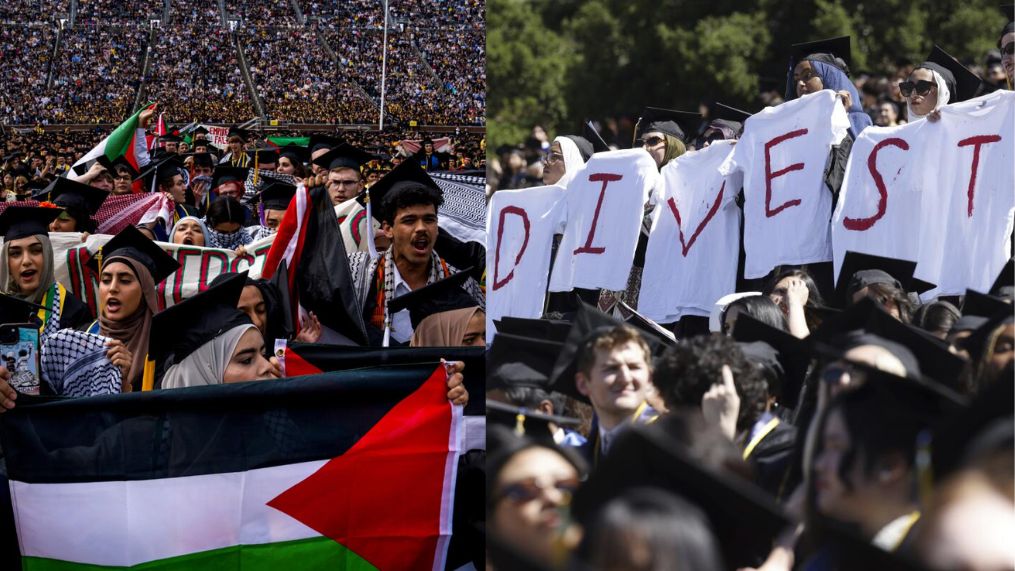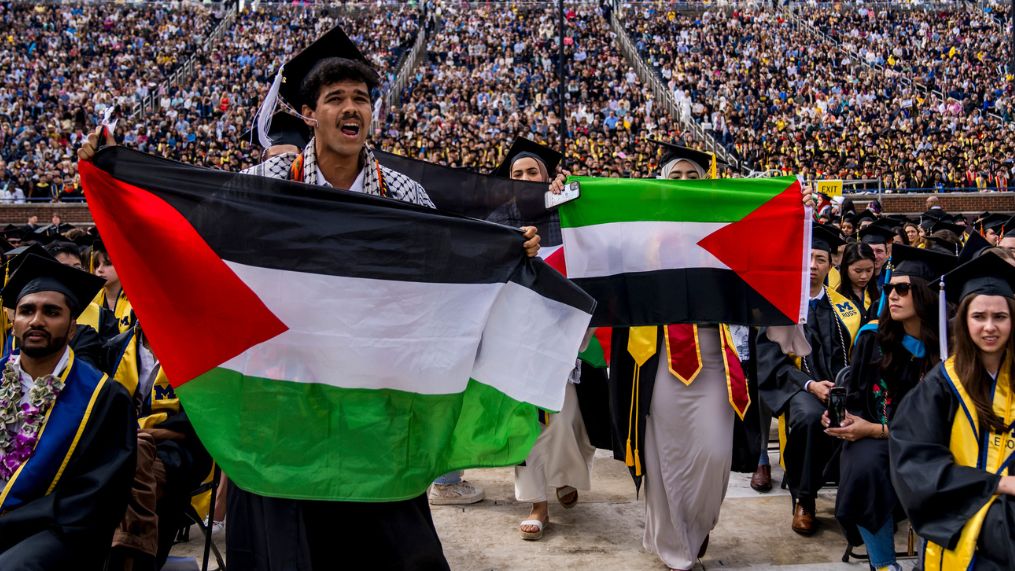In Denver, a group of students, recently freed from police detention, returned to their fellow pro-Palestinian demonstrators to a chorus of cheers.
They brandished court summons as symbols of resilience amidst escalating tensions over the conflict in Gaza. As universities across the United States prepare for graduation and summer break, the longevity of these protests is in question.
The demands of the student activists encompass a permanent ceasefire in Gaza, divestment from arms suppliers, and amnesty for disciplined protesters. The efficacy of these demonstrations hinges on their ability to sustain momentum beyond the academic calendar.
Experts emphasize the necessity for organizational infrastructure beyond campus activism to ensure the movement’s continuity.

Dana Fisher underscores the spontaneous nationwide spread of the movement, ignited by police actions at Columbia University.
In Denver’s Auraria campus, where 45 arrests occurred during an encampment protest, subsequent sit-ins intensified the calls for action. Despite the challenges ahead, students remain resolute in their commitment to persist through the summer and beyond.
The geographic diversification of the university encampments presents an opportunity to amplify the message of the wider pro-Palestinian movement.
While protests may be episodic, Michael Heaney stresses that they are just one facet of the ongoing effort to support Palestinians, a cause spanning decades.
As tents remain pitched on Auraria’s campus, serving meals daily, student organizers affirm their dedication to the cause. Despite the impending departure of graduates, they vow to remain steadfast in their pursuit of justice for Palestine.




